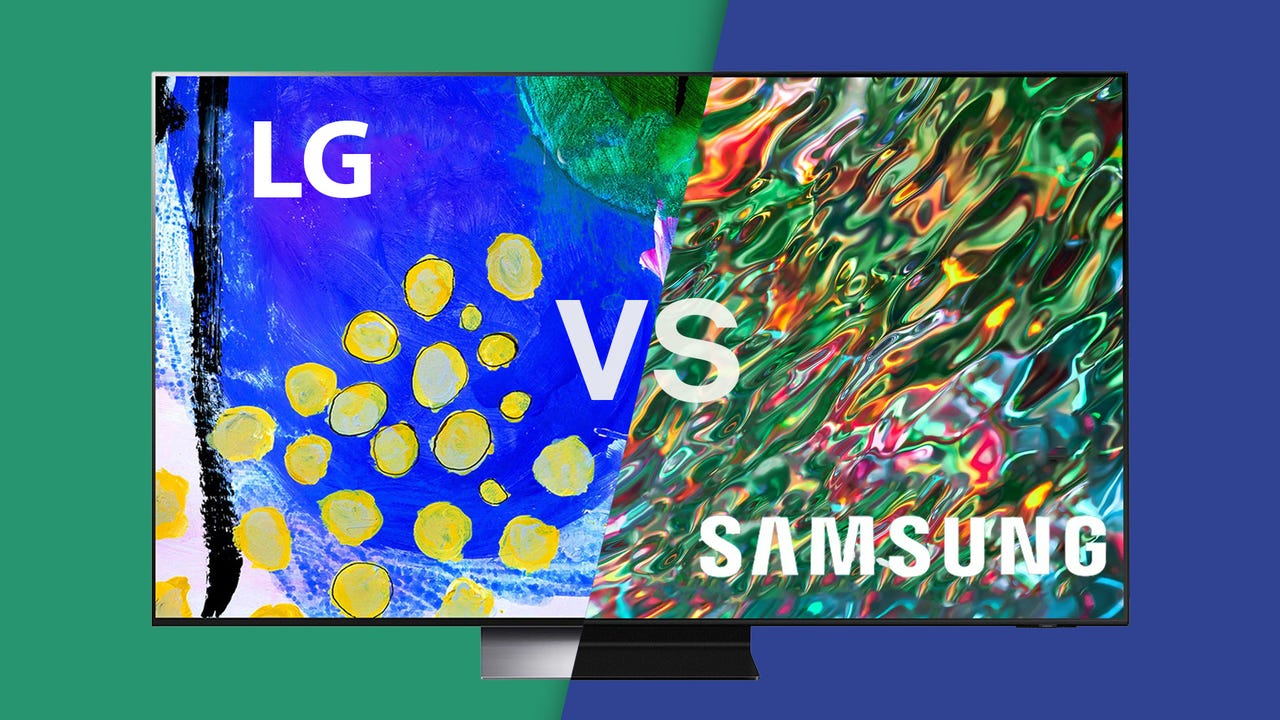'ZDNET Recommends': What exactly does it mean?
ZDNET's recommendations are based on many hours of testing, research, and comparison shopping. We gather data from the best available sources, including vendor and retailer listings as well as other relevant and independent reviews sites. And we pore over customer reviews to find out what matters to real people who already own and use the products and services we’re assessing.
When you click through from our site to a retailer and buy a product or service, we may earn affiliate commissions. This helps support our work, but does not affect what we cover or how, and it does not affect the price you pay. Neither ZDNET nor the author are compensated for these independent reviews. Indeed, we follow strict guidelines that ensure our editorial content is never influenced by advertisers.
ZDNET's editorial team writes on behalf of you, our reader. Our goal is to deliver the most accurate information and the most knowledgeable advice possible in order to help you make smarter buying decisions on tech gear and a wide array of products and services. Our editors thoroughly review and fact-check every article to ensure that our content meets the highest standards. If we have made an error or published misleading information, we will correct or clarify the article. If you see inaccuracies in our content, please report the mistake via this form.
LG vs Samsung TV: Which brand should you buy in 2024?

Whether you're looking for a smart TV for everyday viewing, a 4K or an 8K option for a gaming room, a large TV for a home theater, or just the right fit for your living room, you may be wondering how to choose the best TV to meet your needs. Samsung and LG, two of the leading TV manufacturers in the world, are popular brands with options for all: from the budget-conscious to the premium, no-holds-barred consumers.
Also: Samsung will give you a free 65-inch 4K TV right now, and there are many ways to qualify
Both LG TVs and Samsung TVs offer a wide array of options for customers, so it wouldn't be fair to narrow down each brand to just one television for the sake of comparison. Samsung is notably known for its wide array of QLED televisions, while LG is most popular for OLED technology for TV panels. But neither company exclusively manufactures one type of panel.
That said, one of the two companies may offer a TV that's better suited for your particular needs, and we'll break down the distinguishing features below to help you decide.
You should buy a Samsung TV if...
1. You want a brighter picture than most
Samsung's QLED (quantum-dot light-emitting diode) technology is at the top of the line for full-array local dimming. The company's QLED screens have become popular among those looking for the best picture quality around, most recently with Samsung's Neo QLED series leading the charge.
Also: The best QLED TVs from 50 to 98 inches
The technology, which employs an LED backlight projected onto a quantum dot layer, is known for its brightness and vibrancy, but it has the drawback of potential white bleeding. This results in graying or a blooming effect when black-colored images are displayed onscreen with lower contrast. The brightness power of the LED backlight, however, is unmatched compared to OLED technology and makes QLED TVs a great option for any room, whether dim or brightly lit.
2. You want a fantastic 8K television, and are willing to pay for it
It's no wonder that OLED 8K TVs sound like a myth: The retail price alone of such a combination of features is enough to balk at, though both manufacturers do make these. This LG OLED 8K 77-inch television with an MSRP of $12,999 is an example. Samsung's Neo QLED QN900D 8K 75-inch TV, in contrast, retails at $6,299, about half the price.
Also: The best 85-inch TVs of 2024: Expert tested and reviewed
Generally speaking, Samsung has more options for 8K-resolution TVs than LG, especially when it comes to choosing the panel with the best and most versatile picture for different areas, either dimly lit or bright. While LG has a decent, budget-friendly 8K option in the QNED MiniLED 99 Series, the picture quality of Samsung's QN900D TVs exceeds the former, particularly in contrast and color. ZDNET Editor-in-Chief Jason Hiner tested the QN900D model recently and commended it for its extreme brightness and vibrancy, which allowed it to light up some shadows and colors in ways that the best OLEDs have a tough time keeping up with.
3. You're sold on Samsung's AI features
At this year's CES, Samsung announced that AI will play a greater role than ever before in its TV lineup's functionality. New advancements in artificial upscaling allow the TVs to take lower-resolution content and make it look higher-resolution in near real-time. This means that standard definition and high-def content will be upscaled to 4K, while 4K content will get bumped up to 8K with the TV's onboard AI Upscaling Pro technology.
Also: Samsung unveils 2024 TVs with AI features that you'd actually want to use
The AI in these TVs will also be using a technology called Real Depth Enhancer Pro, which intends to sharpen images in the foreground of the frame, while simultaneously improving the clarity of main content. LG has similar AI modifications, but the performance of both brands is still to be tested. For now, our suggestion is to visit a local Best Buy or TV shop and see the features in action with your own eyes. You'll likely be drawn to one more than the other.
In addition to the picture-enhancing capabilities, the AI tech improves the TVs' usefulness while they're powered off, turning the screen into a customizable information hub that can integrate with other devices to show missed calls or incoming text messages, weather information, and a host of other widgets. Samsung calls this the Now+.
You should buy an LG TV if...
1. You want your choice from the best OLED TVs
Whether LG or Samsung makes the best OLED televisions is up for debate and depends on personal preferences, but the former company is certainly well-known for its inky-black displays. Over the years, LG has largely cornered the OLED TV market, as LG Display has grown to become the leading OLED TV panel manufacturer in the world. If you have a preference for OLED, then you can't go wrong with an LG set, like the most recent LG C4 and the G4 -- though that doesn't mean Samsung doesn't have any OLED screens, as evidenced by the highly acclaimed Samsung S95D
2. You prefer more size options
If you're looking for a stronger, crisper contrast in your image and colors, with deeper blacks that don't gray out on your TV screen, many would tell you to go with an OLED panel. And they wouldn't be mistaken: This rich contrast and true black is what has made OLED technology so popular, particularly for home theaters and dark rooms.
With LG TVs specifically, the newer C4 and G4 models are offered in smaller-than-Samsung sizes too, including 42 and 48 inches. And for those with larger spaces, LG's OLED models come in 85 and 97 inches. Samsung's S95D, on the other hand, caps out at 77.
Also: The best OLED TVs you can buy: Expert tested
LG also has alternate NanoCell panels for some televisions, which tend to sell for a lower price than OLED TVs, but you can notice the difference in contrast and brightness when comparing NanoCell with OLED, so they're not the best option for dimly lit or dark rooms.
3. You use HomeKit, or want voice-activated profiles
Smart LG TVs run on WebOS, the company's operating system. It's an intuitive platform that can be compatible with home automation systems like HomeKit. And if you're familiar with Apple's smart home system, you're likely aware of how rare it is to find something compatible with it.
Not all LG smart televisions are compatible with HomeKit -- models launched before 2018 are unlikely to -- so check the box or list of specifications for the "Works with Apple HomeKit" label.
Also: LG's newest OLED TVs will use AI to look and sound better than ever
Some smart LG TVs are also compatible with Google Assistant and Amazon Alexa if either of the home assistants is more your speed. In addition to recognizing these assistants, 2024 LG TVs will soon be able to use voice recognition technology to differentiate between users, allowing them to auto-switch between individual profiles with distinct settings and preferences.
Recognition of individual users' voices will initiate a customized home screen for the corresponding user's favorite services, as well as load their viewing settings, including picture and language settings.
